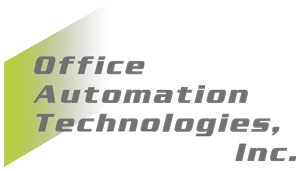Cloud Solutions For The Financial Industry
Changing the Dynamic
Financial firms, much like nearly all other industries, are accelerating their digitalization. Cloud computing has become a significant enabler for this transformation, driving faster innovation, creating simpler customer experiences, and returning substantial cost savings.
Remote and hybrid work environments are also a drastic change that has come from the adoption of cloud technologies. Employees can now access data and applications from anywhere, and it’s important that businesses, especially those in the finance sector, understand how to maintain regulatory compliance, and security for the sensitive information they handle on a daily basis.
The Cloud In Business Growth
Cloud solutions are more popular than ever, and their adoption continues to grow for good reason. For SMBs, the cloud eliminates the need for large upfront IT investments in hardware and infrastructure. It allows you to pay only for what you use, making advanced technology accessible and affordable. This flexibility helps SMBs scale operations up or down quickly, adapting to fluctuating demands without costly upgrades.
Beyond immediate cost benefits, the cloud significantly accelerates business transformation. It brings increased speed, agility, and scalability, enabling stronger customer relationships and rapid delivery of new products and services. This also allows for more resilient operations, especially crucial in today’s increasingly remote and distributed work environments. Cloud adoption is transformational for growing firms, while those that don’t may face major competitive disadvantages.
Cloud, Remote Work, and Business Evolution
The emergence and rapid growth of remote and hybrid work models have profoundly reshaped business operations, with cloud computing at its core. Cloud-based platforms enable seamless access to applications, data, and tools from any location, making “work from anywhere” a reality for your team. This flexibility supports a better work-life balance and allows SMBs to tap into a broader, more diverse talent pool beyond geographical limitations.
However, this shift also introduces new complexities. Employees accessing sensitive data from various locations and devices, often on less secure home networks, highlights new vulnerabilities for attackers. Ensuring secure collaboration, robust data protection, and continuous compliance across a distributed workforce becomes crucial. Cloud services are amazing for unifying communication, enabling real-time collaboration on documents, and centralizing data management for remote teams. But, without proper cloud governance, security, and compliance, the benefits of remote work can quickly be overshadowed by heightened risks.

Unique Challenges for Small and Medium Sized Financial Firms
Small and medium sized businesses (SMBs) face unique challenges in the cloud. While they may not have the same specific regulations as large financial firms (like FinCEN or FINRA for banks), they still must adhere to data privacy laws, industry standards, and general cybersecurity best practices relevant to their sector. Agencies and frameworks like the National Institute of Standards and Technology (NIST), Cloud Security Alliance (CSA), and Center for Internet Security (CIS) provide critical guidance.
Governance, security, and compliance in the cloud introduce new challenges, as traditional approaches often fall short. Cloud IT assets can be created and destroyed in milliseconds, and usage is frequently unconstrained or even unmonitored. New cloud services become available to developers constantly, yet many SMBs don’t fully understand the associated risks, requirements for safe deployment, or potential compliance impact.
Many small and medium institutions struggle to know exactly what assets they have in the cloud, let alone whether their usage is appropriate or who is responsible for ensuring secure operations. This often results in a nonstop pattern of high-profile cloud data breaches. One study found that nearly 80% of companies experienced at least one cloud breach in the prior 18 months, with 43% reporting ten or more. Key concerns for business leaders include security misconfiguration, lack of visibility into settings and activities, and identity and access management.
This uncontrolled security exposure must stop. Attacks can impact your business in many ways, including lost financial assets, stolen customer information, stolen intellectual property, business disruption, and damaged reputation. At Office Automation Technologies (OATI), we specialize in financial firm IT solutions. We can help guide you through the ever-changing regulations and ensure your business data remains secure!
Your Role and Responsibility
While cloud providers secure their infrastructure, your business retains ultimate responsibility for securing your data and applications in the cloud. This critical distinction is often overlooked by SMBs. You are responsible for configuring security settings, managing user access, and ensuring data complies with all applicable industry or privacy regulations.
Implementing effective processes to identify, measure, monitor, and control cloud computing risks is essential. Management must determine appropriate governance levels for each system and information asset. Understanding the impact on your IT architecture and operational models is also crucial.
Complying with these directives proves challenging for almost every SMB. Few small to medium-sized businesses possess extensive expertise in cloud technology, security, or robust governance. Unlike legacy IT, the cloud’s rapid adoption leaves little time to build necessary internal knowledge or comfort.
How Office Automation Technologies Can Help
Office Automation Technologies provides SMBs with a fully managed and custom solution for all your cloud needs. We ensure you meet all relevant industry standards and best practices for cloud governance, security, and compliance, including those guided by NIST and CSA.
We give you the necessary policies and controls, enhanced visibility into cloud usage, and automation of cloud compliance functions. Implementing a comprehensive policy set requires a rare combination of skills, often beyond the resources of an in-house SMB IT team. Your firm doesn’t have the luxury of waiting to acquire the expertise needed to become cloud security and compliance experts, nor the time to create comprehensive policies and tools for continuous visibility and control.
If you are looking to take your small or medium-sized business to the cloud, or need help securing your existing cloud environment, give us a call today. Let our team of experts discuss how we can help you achieve your goals and meet all your security and compliance requirements seamlessly.
Have questions or would like to learn more?
